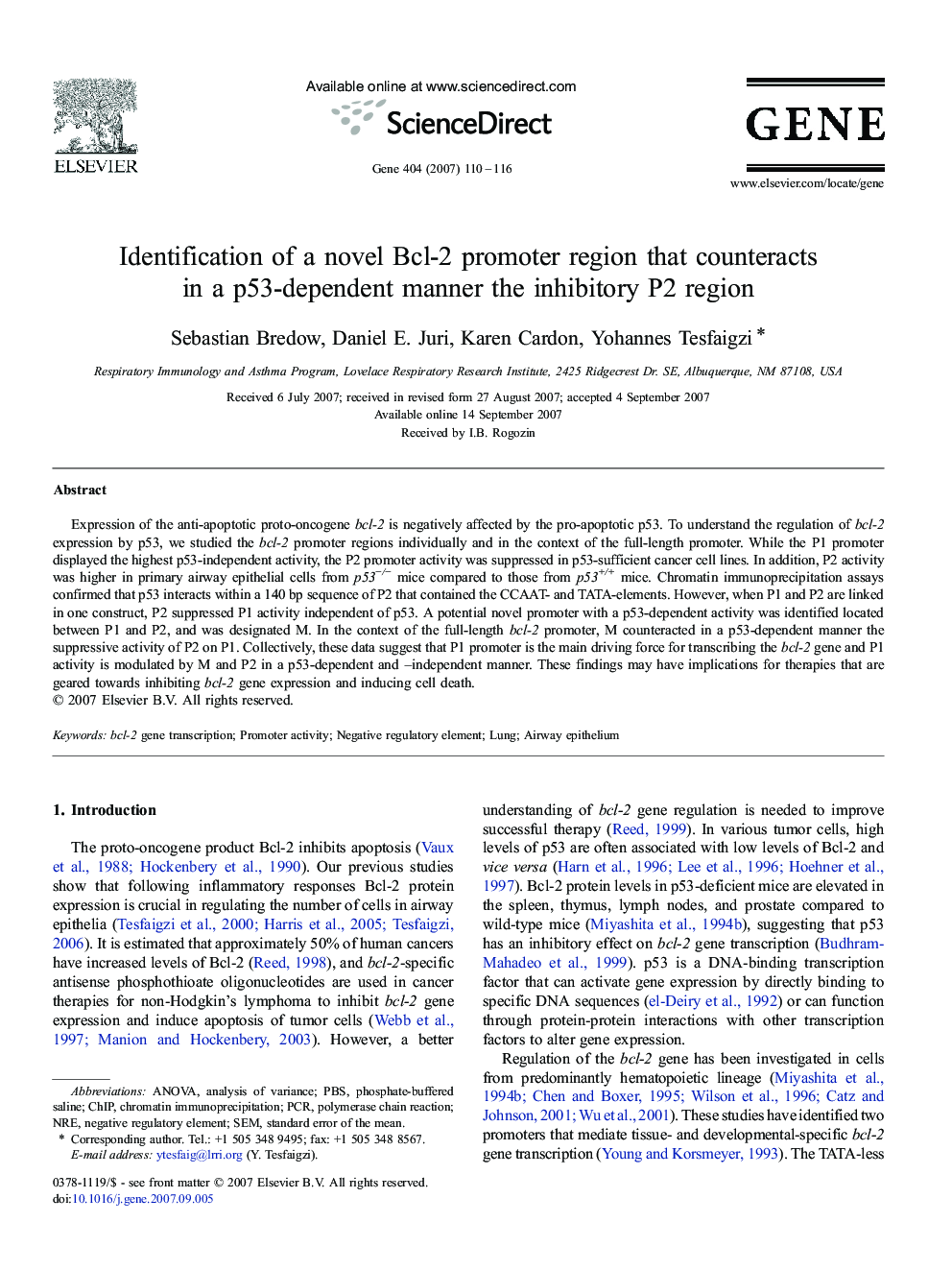| Article ID | Journal | Published Year | Pages | File Type |
|---|---|---|---|---|
| 2819536 | Gene | 2007 | 7 Pages |
Expression of the anti-apoptotic proto-oncogene bcl-2 is negatively affected by the pro-apoptotic p53. To understand the regulation of bcl-2 expression by p53, we studied the bcl-2 promoter regions individually and in the context of the full-length promoter. While the P1 promoter displayed the highest p53-independent activity, the P2 promoter activity was suppressed in p53-sufficient cancer cell lines. In addition, P2 activity was higher in primary airway epithelial cells from p53−/− mice compared to those from p53+/+ mice. Chromatin immunoprecipitation assays confirmed that p53 interacts within a 140 bp sequence of P2 that contained the CCAAT- and TATA-elements. However, when P1 and P2 are linked in one construct, P2 suppressed P1 activity independent of p53. A potential novel promoter with a p53-dependent activity was identified located between P1 and P2, and was designated M. In the context of the full-length bcl-2 promoter, M counteracted in a p53-dependent manner the suppressive activity of P2 on P1. Collectively, these data suggest that P1 promoter is the main driving force for transcribing the bcl-2 gene and P1 activity is modulated by M and P2 in a p53-dependent and –independent manner. These findings may have implications for therapies that are geared towards inhibiting bcl-2 gene expression and inducing cell death.
